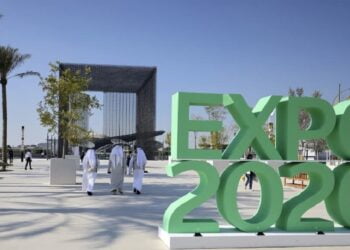In a night that shattered the relative calm of the past few days, Israeli forces launched a significant operation on Al-Shifa Hospital in the heart of Gaza City, reportedly amidst heavy tank and gunfire, according to sources on the ground. The Israel Defense Forces (IDF) have characterized the operation as a “high precision” activity focused on specific areas within the hospital complex.
A spokesperson for the IDF cited the necessity of the operation due to actionable intelligence that “senior Hamas terrorists have regrouped” within the medical facility, allegedly using it as a base to launch attacks. The specificity of the IDF‘s objective speaks to the complexities of urban conflict, where militants can blend into civilian infrastructure.
Eyewitnesses at Al-Shifa, which serves as the largest medical complex in the Gaza Strip, recounted moments of alarm and turmoil as the raid unfolded. Amidst the confusion, a voice recording from a man trapped inside the hospital surfaced on social media, detailing the harrowing encirclement by tanks and the sound of tank fire nearby, encapsulating the fear that gripped those inside.
Social Media Documentation
Unverified video clips permeating social media platforms illustrate the intensity of the moment, with the echoes of gunshots forming a disconcerting backdrop to visuals of the hospital premises. The spread of these clips has drawn international attention, sparking a surge in both concern and condemnation.
The intrusion of an active conflict zone into a medical facility stands as a stark breach of the internationally held sanctuary status of such places. Under the mantle of international laws and the Geneva Conventions, hospitals are protected sites, raising urgent questions about the legality and morality of the IDF’s operation, regardless of the alleged military necessity.
Palestinian authorities, along with spokespeople from Hamas, have yet to issue formal statements regarding the incident. Still, preliminary reactions expressed through regional media condemn the raid as an affront to human rights and an escalation of aggression.
Al-Shifa Hospital’s centrality to Gaza’s healthcare system underscores the potential for widespread ramifications that a military operation within its bounds could entail. Beyond the immediate dangers, the disruption in services could pose secondary health crises for a population already struggling under the strains of blockade and ongoing conflict.
From Israel’s perspective, the operation represents a tactical response to the adaptive strategies of Hamas, which, according to the IDF, increasingly involves the use of civilian infrastructure for military ends. This poses an ongoing challenge to Israeli forces to differentiate between militant targets and civilian spaces.
The raid on Al-Shifa will likely garner significant international scrutiny, with past incursions into civilian spaces by the IDF having sparked global debate. International humanitarian organizations, human rights advocates, and foreign governments will be closely monitoring the unfolding situation, weighing in on the implications for both the conduct of warfare and the protection of human rights.
Military analysts will be examining the raid’s tactical and strategic outcomes, looking at the potential shift in Hamas’ tactics and Israel’s corresponding responses. Simultaneously, political experts will be considering the raid’s impact on the Israeli-Palestinian dialogue, including ceasefire negotiations.
As the delegation prepares for the talks in Doha, the political underpinning governing Israel’s and Hamas’s positions is complex. For years, the peace process has been punctuated by impasse and intermittent violence, leaving a trail of unresolved issues. The involvement of regional powers like Egypt and Qatar is essential in mediating these complexities given their unique standing and interests in the region.
International response plays a significant role as well. The United States and European Union, among other stakeholders, have vested interests in stability in the Middle East. Moreover, their nuanced positions vis-a-vis support to Israel and calls for Palestinian statehood add layers of diplomatic delicacy to the proceedings in Doha.
Humanitarian aid has become a frontline concern in negotiations. For Gaza’s population, afflicted by blockades and recurrent hostilities, aid is a lifeline. How these talks address lifting restrictions and allowing aid can not only serve the immediate needs but also potentially decrease tensions in the strip and surrounding areas.
For Israel, security considerations are paramount. The insistence on the cessation of rocket fire and tunnel activities by Hamas is balanced against international calls for easing Gazan suffering. Barnea’s background in intelligence suggests rigorous scrutiny of cease-fire terms to ensure they align with Israel’s security strategy.
Within the Palestinian territories, the role of Hamas and its governance of Gaza is subject to diverse perspectives. Some view Hamas as a defender against occupation, while others see the group as exacerbating Palestinian suffering through its actions. The outcome of these talks could influence internal Palestinian politics and the prospect of intra-Palestinian reconciliation.
The issue of prisoner exchanges strikes deep emotional chords. For families of detainees and those missing or captured, resolution can’t come soon enough. Politically, prisoner swaps are symbolic and significant, impacting the public morale and the leadership’s standing in domestic and international circles.








